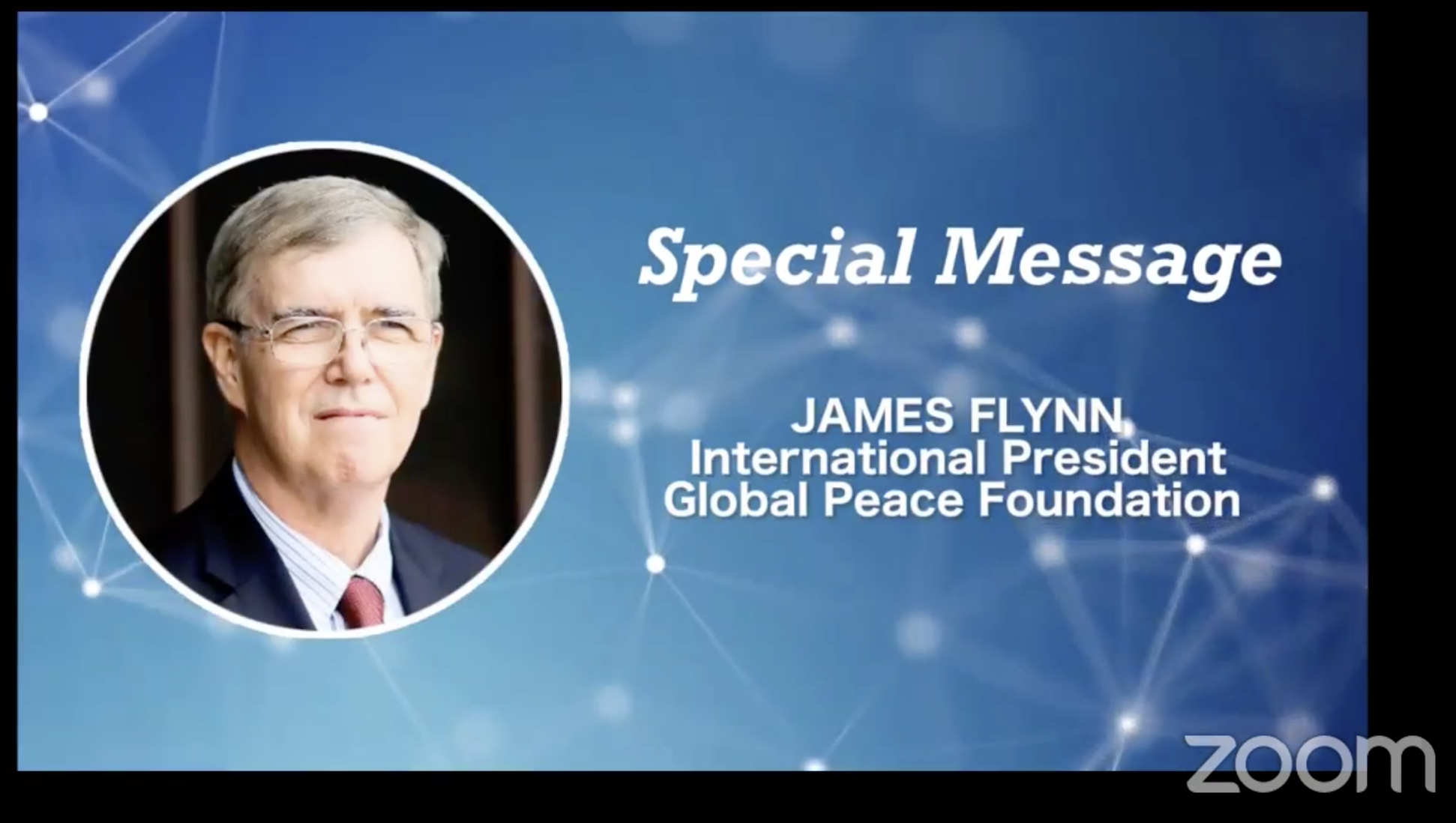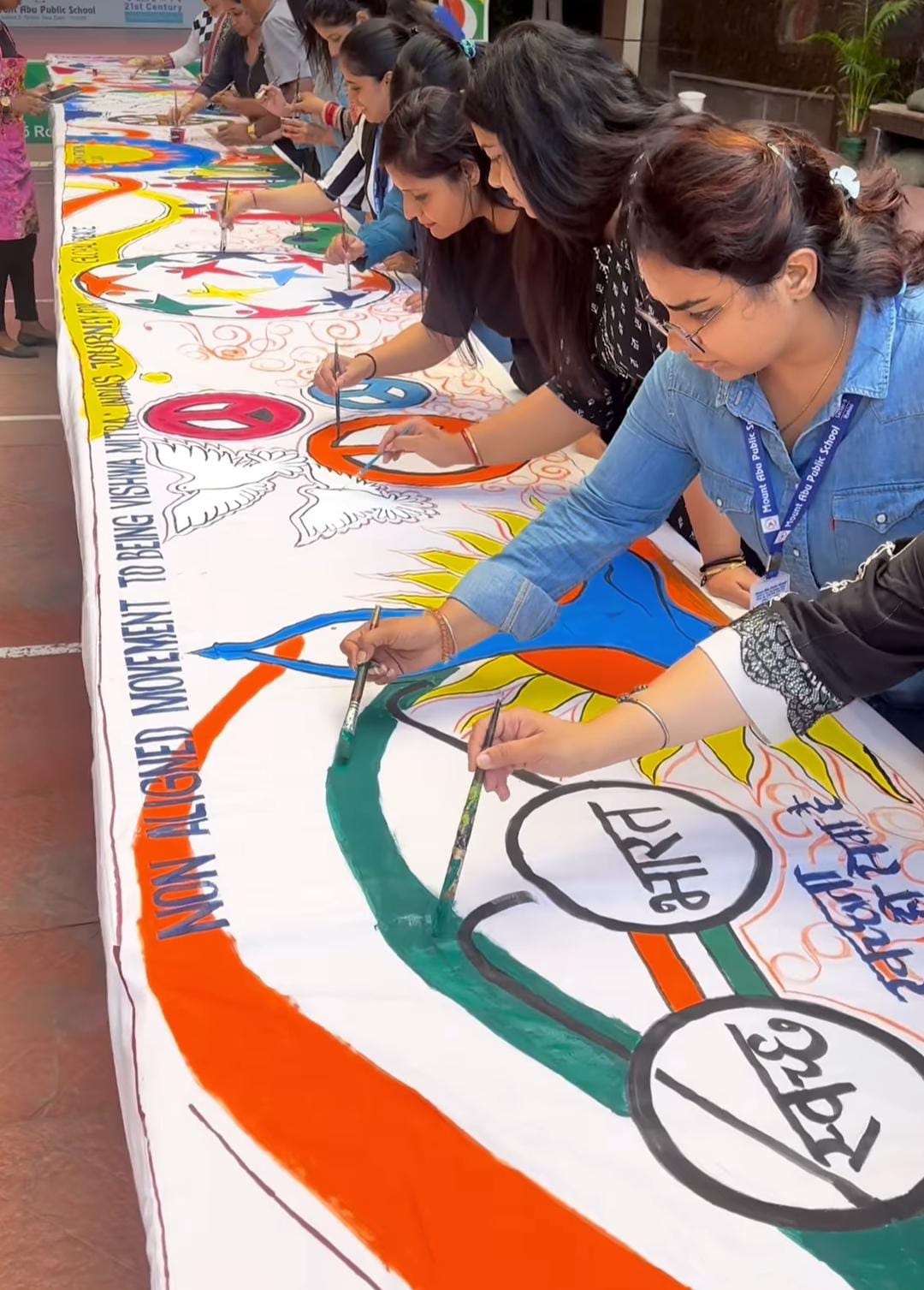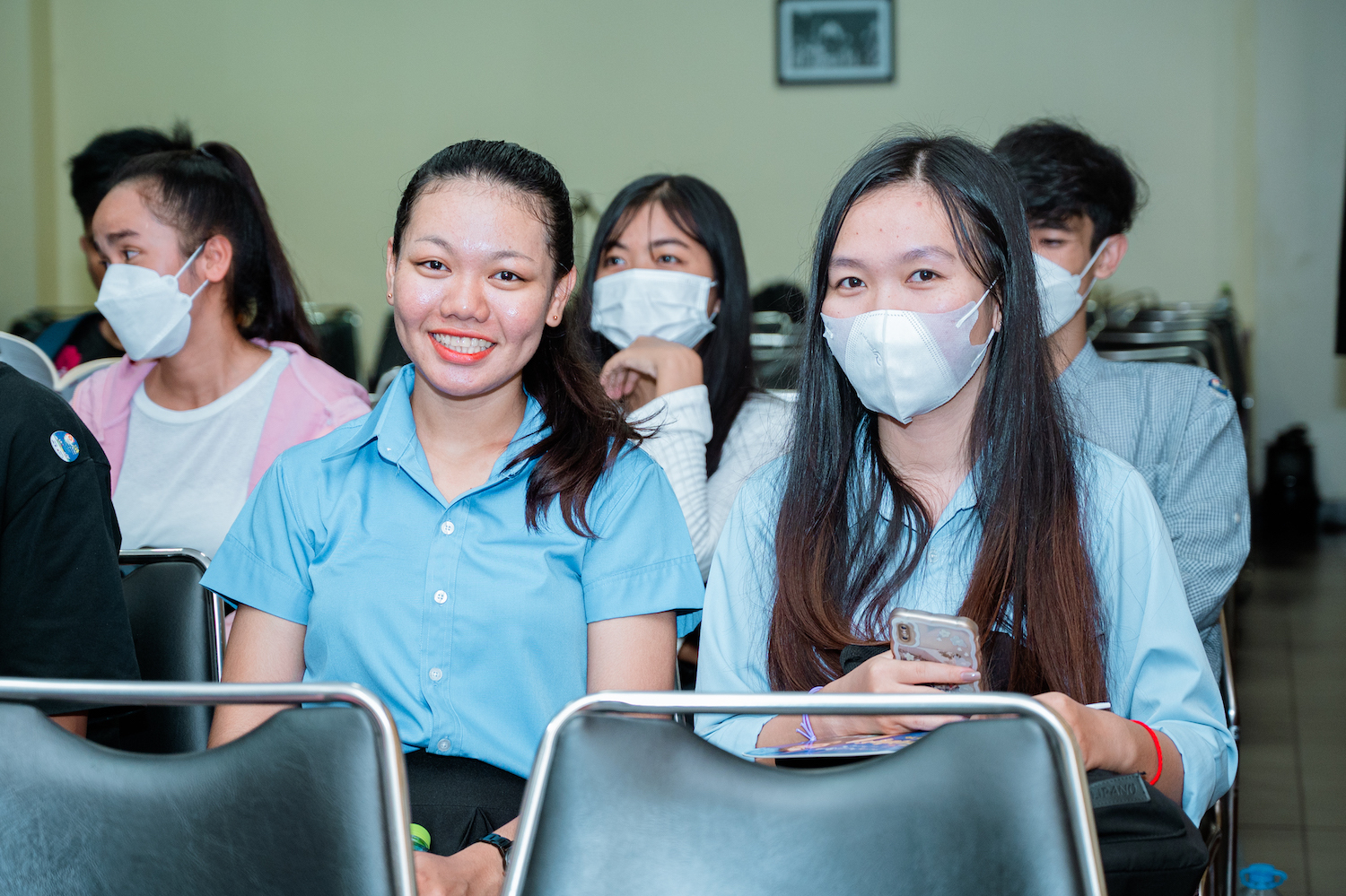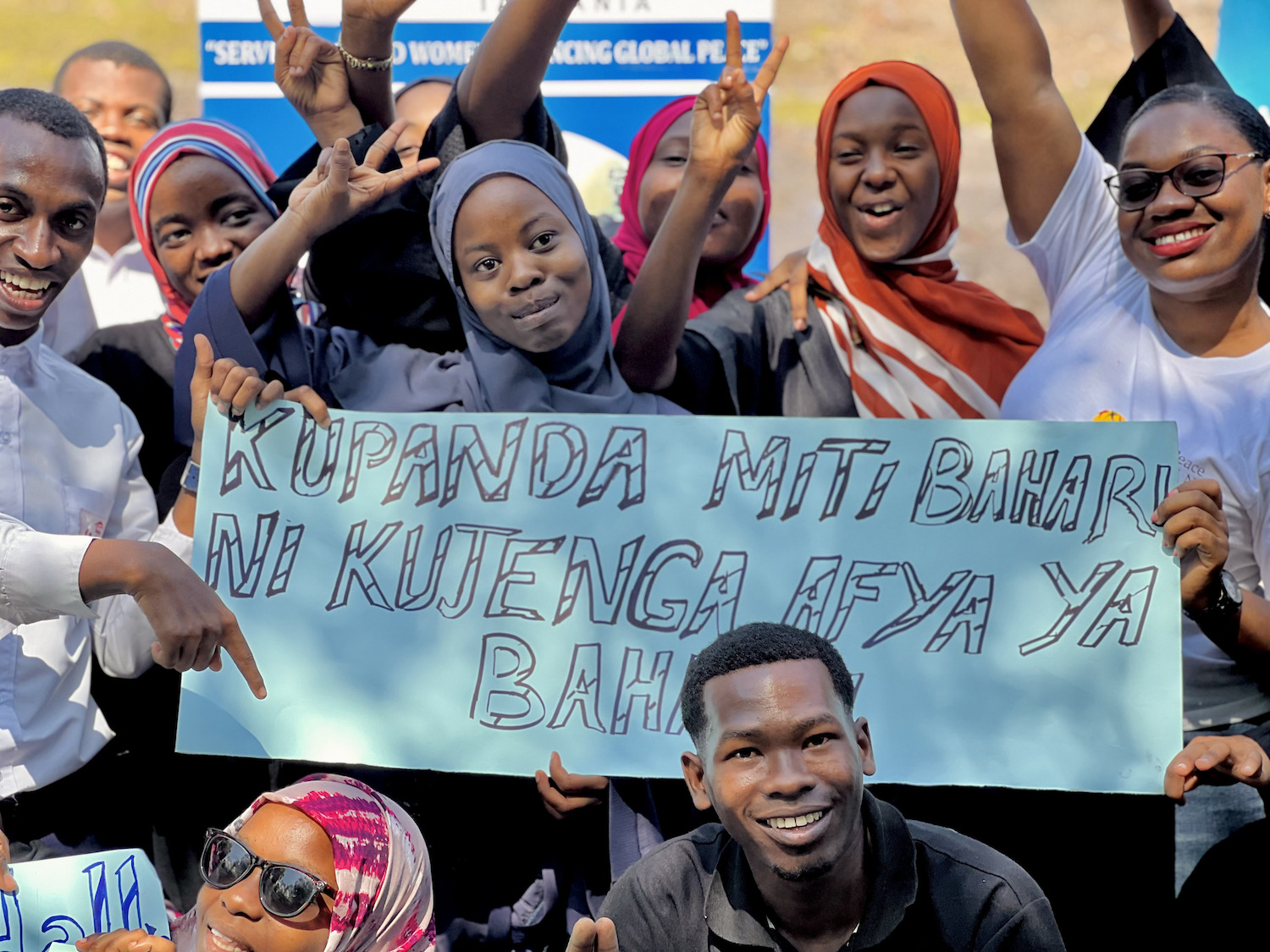
Global Peace Foundation (GPF) International President James Flynn gave the following message online for a special virtual forum hosted by GPF Philippines in commemoration of the 2020 International Day of Peace on September 21. Watch the full online forum HERE.
Greetings from Washington DC, and many thanks to the organizers, speakers and all participating in this meaningful virtual forum. I want to especially appreciate the Consuelo Foundation and Global Peace Foundation Philippines for organizing this UN-75 webinar series that encourages and engages young leaders in creative collaboration to “shape our future together.”
Forums like this one, commemorating the 2020 International Day of Peace, have special significance in this, the 75th anniversary year of the United Nations’ founding. There are many UN-designated international days, but the International Day of Peace represents the core mission of the United Nations. It was established in 1981 to strengthen the ideals of peace, urging all to dedicate the day to cessation of hostilities, to non-violence, as well as to dialogues, education and activities for peace.
The International Day of Peace is celebrated in conjunction with the annual United Nations General Assembly, which this year will not be held at the UN Headquarters in New York. Instead, the 2020 General Assembly beginning September 22nd will be convened virtually for the first time ever, another consequence of the COVID-19 pandemic that is dramatically impacting the entire world.
The unprecedented circumstances this year are a powerful reminder that we are all connected, that we impact each other as we live together in our common home on this planet, and that we must work together to solve the problems that impact us all. Given this context, it is quite fitting that the theme for the 2020 International Day of Peace is Shaping Peace Together.
So as this forum is coming to a conclusion, I appreciate the opportunity to share some thoughts on this theme. What can each of us do? How can we all contribute to shaping peace together? I want to describe two important aspects to consider:
• Cultivating a mindset for building peace
• Peacebuilding as an everyday focus
As we look around the global landscape today, the trajectory of current affairs seems headed toward rancor, division and conflict more than cooperation and peace. Many nations struggle with political polarization. Because of the pandemic and other issues, nations are increasingly focusing on self-interest rather than international cooperation. The promise that social media could help us to communicate with and understand each other as a global community, has been replaced with the sobering realization that those same social media tools are being used to further divide, manipulate and even control people around the world.
Given this stark reality, “shaping peace together” must begin with a way to surmount the many divides that separate us, and affirm the common ground on which we can come together. Ultimately that means examining how we perceive and relate with each other, especially those very different from ourselves. I firmly believe that the key is in our essential human identity, and our common experience of family.
We all share a common identity and heritage; our “humanness” extends beyond even our most pronounced external differences. We naturally and intuitively recognize that every person has value, has worth. That is why we make great efforts to save even one human life. Our value as human beings is imbued in us by the Creator. This essential understanding of the value of every person is reflected in the words of then UN Secretary General Kofi Annan when he said this in his 2001 Nobel lecture:
“In the 21st century, I believe the mission of the United Nations will be defined by a new, more profound awareness of the sanctity and dignity of every human life, regardless of race or religion.”
“Family” is the center of all human experience, and is the most important social institution. That is why we can readily understand that we are all part of the one human family. And we are one family because we all share a common Origin. Thus, we at the Global Peace Foundation believe that the vision statement that can inspire and motivate our efforts for shaping peace together – is One Family under God.
Much of the conflict in our world today is identity-based. Whether the divides are racial, tribal, religious, or political, these conflicts involve “us versus them” dynamics based on identity. To move beyond the vicious cycles of such conflicts, we need to focus on shared humanity, our most essential identity as part of the one human family. Imagine if we really could begin to understand that, before I am an American, or a Kenyan, or a Korean; and before I am Christian, or a Muslim, or a Buddhist, I am first and foremost part of the one human family.
Slogans like “we are family” or “we are one human family” or “we are the world” are great; they remind us that we are all connected, that we are all one. If we really believe that we all belong to one human family, then we should all see “family” in each other. If I recognize every person as a brother, sister, cousin or uncle to me, then I will respect and honor him or her as part of my family, even though there may be many ways in which we differ.
Sounds good, but actually not so easy to do. All of us have misconceptions, biases, and prejudices. Oftentimes those are so ingrained that we are not even aware when we treat others badly. That is why we all need to work intentionally, to relate, engage and learn from each other. To genuinely engage others as “family” requires that we work on ourselves and that we help each other to move beyond prejudice and other ingrained negative attitudes and habits. Together we need to cultivate the mindset for peace – meaning the perspective that respects the dignity and value of every person in the one human family.
My second point about shaping peace together is that we can all contribute by making “peacebuilding an everyday focus.” So, what do I mean by that? At GPF we believe it is quite important to understand what peacebuilding entails because everyone can be a peacebuilder. Peace is much more than the absence of conflict. Building peace means restoring relationships, building trust, and resolving underlying issues that lead to conflict. What is sometimes called “positive peace” means peace with justice. The work of building peace in any community never ends; relationships always require our investment, intentionality, and care. A peacebuilder is one who seeks to build positive peace by contributing to the cohesion, trust and engagement within their community. Everyone can be a peacebuilder. To make building peace an everyday focus is as simple as deciding to do one thing every day that advances peace in whatever way, large or small.
Attaining peace in our troubled world seems a mountain too high to climb. But as the theme of today’s International Day of Peace – Shaping Peace Together – reminds us – we can climb that mountain with many small steps.
The starting point is our mindset – how we see each other and relate with each. But as important, is what we do: everyone can be a peacebuilder and building peace can be an everyday focus, one small step at a time.
The celebrated humanitarian Mother Theresa said, “Today if we have no peace, it is because we have forgotten that we belong to each other – that man, that woman, that child – is my brother or my sister.” Let us remember, let us learn anew, that we belong to each other. That every person has immense value and dignity as part of the one human family. And that we can shape peace together.
Thank you for your kind attention.



